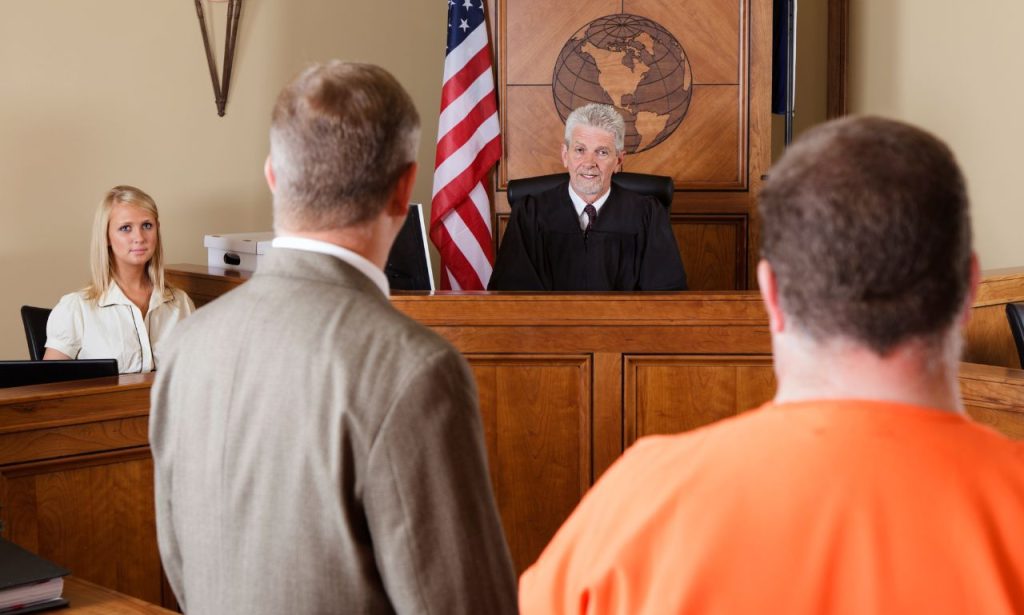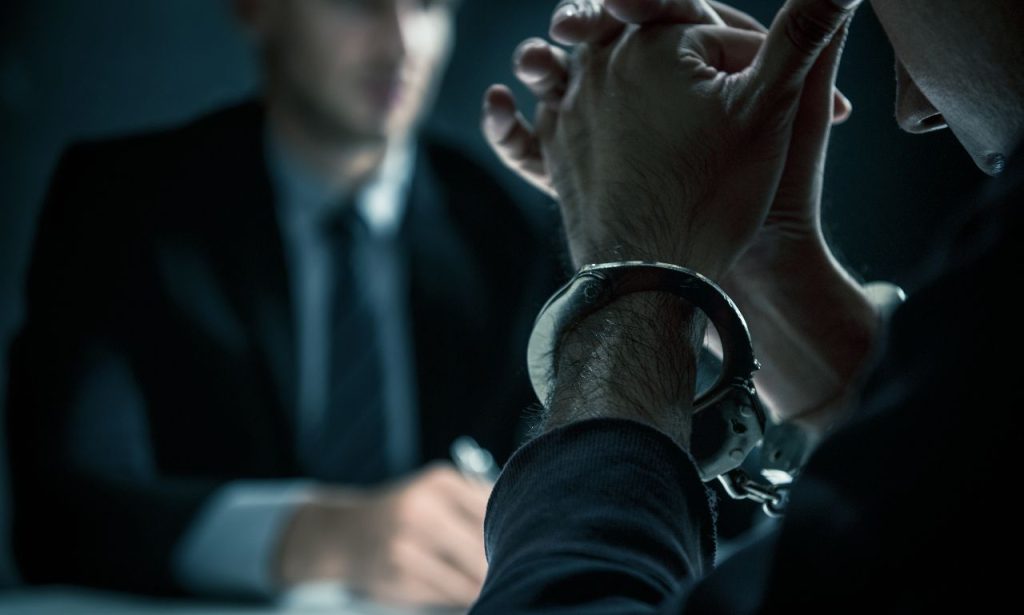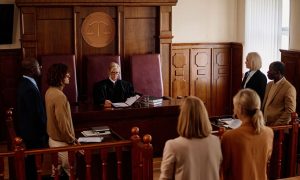When you face criminal charges, the stakes couldn’t be higher. Your reputation, freedom, and future are all at stake. In this article, I’ll walk you through why securing a skilled criminal defense lawyer is not just a wise choice but an absolute necessity. We’ll explore their role, the key advantages they bring, and the long-term impacts on your life. Ready to learn how to safeguard your rights and build a winning defense? Let’s dive in.
Understanding the Role of a Criminal Defense Lawyer
A criminal defense lawyer acts as your advocate from the moment you’re charged. They interpret complex statutes, apply constitutional protections, and stand between you and the full force of the justice system. Think of them as both navigator and negotiator—guiding you through procedural hurdles and bargaining on your behalf with prosecutors. They analyze evidence, prepare motions, and, if necessary, take your case to trial. Without this expertise, you risk stumbling through legal processes that are anything but straightforward.
A seasoned defense attorney will review police reports, eyewitness statements, and forensic data. They identify weaknesses in the prosecution’s case, hunting for violations of your Fourth Amendment rights or Miranda infractions. They’ll consult expert witnesses—perhaps a forensic pathologist to challenge cause-of-death findings or a toxicologist to dispute blood-alcohol readings. By piecing together these insights, they craft a narrative that highlights reasonable doubt and protects your constitutional due process rights.
Key Reasons to Hire a Criminal Defense Lawyer

1. Expertise in Criminal Procedure
Legal procedures are labyrinthine. One missed deadline or improperly filed motion can be costly. A criminal defense lawyer knows the rules inside and out—whether it’s filing a motion in limine to exclude prejudicial evidence or contesting the admissibility of a coerced confession. Their fluency in procedural law ensures your rights are preserved at every step.
2. Strategic Case Assessment
Early on, your lawyer will assess the strength of the evidence. They’ll question whether police had probable cause for your arrest or if law enforcement misapplied search and seizure laws. This strategic evaluation informs the defense path—be it motion practice to suppress evidence or an aggressive trial stance. Without this calibrated approach, you might settle for a plea deal that’s harsher than what a complete defense could negotiate.
3. Protection of Constitutional Rights
It’s easy to overlook civil liberties when stressed by arrest and interrogation. A defense attorney acts as a bulwark, ensuring you aren’t subject to unlawful searches or self-incrimination. From safeguarding your Sixth Amendment right to counsel to preserving the presumption of innocence, they stand guard over the very foundations of our justice system.
The journey from arrest to resolution encompasses multiple stages: booking, arraignment, discovery, plea negotiations, and, potentially, trial. Each phase has its deadlines and pitfalls. At arraignment, for instance, you must enter a plea. Without counsel, you might unknowingly plead guilty to reduce bail, unwittingly forfeiting the opportunity to contest charges. Your attorney guides you through bail hearings and bond negotiations, often securing release under reasonable conditions rather than pretrial detention.
During discovery, the prosecution must share evidence. A defense lawyer doesn’t just passively receive documents—they scrutinize every piece for inconsistencies. They might spot that surveillance footage was edited or that witness statements conflict. That insight can be pivotal. By methodically building your defense story, your lawyer ensures surprises do not blindside you in court.
Crafting a Strategic Defense
Every case demands a unique defense strategy. It could be alibi evidence, self-defense, lack of intent, or a mistake of fact. Your attorney collaborates with you to identify the most compelling angle. They might investigate alternative suspects or timeline gaps. In a fraud case, for example, they could challenge the alleged financial transactions by subpoenaing bank records to show discrepancies. Or, in a homicide charge, they might work with a forensic expert to undermine the prosecution’s timeline of death. This tailored strategy aims to create reasonable doubt in the jurors’ minds.
Crafting such a defense requires meticulous planning and preparation. Your lawyer drafts detailed outlines of witness examinations, prepares demonstrative exhibits for jurors, and structures opening and closing statements that resonate. They rehearse testimony with you, coaching you on how to maintain credibility under cross-examination. That level of preparation distinguishes a robust defense from hasty reaction.
Advocacy During Discovery
Discovery is more than a paperwork exchange; it’s the battleground where your attorney gains leverage. Skilled lawyers know how to file targeted discovery motions when prosecutors withhold evidence. They invoke Brady v. Maryland to demand exculpatory materials—anything that might show your innocence or mitigate your culpability. They file subpoenas for phone records or cell tower data that map your movements. When evidence is incomplete or tainted, they file motions to exclude it, weakening the prosecution’s case before it even reaches a jury.
This advocacy often leads to favorable plea offers. Prosecutors facing a diminished case may agree to reduced charges. Your attorney negotiates vigorously, aiming for diversion programs or deferred adjudication rather than jail time. They frame your record and character to the prosecutor—highlighting your community ties, employment history, or family responsibilities.
Negotiating with Prosecutors
Plea bargaining may not sound glamorous, but ninety-five percent of criminal cases end this way. A defense lawyer’s negotiation skills can make the difference between a felony conviction and a misdemeanor, between years in prison and probation. They use legal leverage uncovered during discovery to push for minimal penalties.
Effective negotiation relies on relationships. Seasoned lawyers build a reputation for fair but tough representation. Prosecutors learn that this attorney cannot be railroaded—they have the skills and the will to proceed to trial. That credibility often yields better deals. Your attorney also knows the judge’s tendencies: who is lenient on first-time offenders, or who prefers rehabilitation over incarceration? Tailoring deals to judicial preferences enhances the odds of acceptance.
Personalizing Legal Representation
No two clients are identical. Your attorney takes the time to understand your background, goals, and fears. They design a defense that reflects your personal story. For a college student charged with DUI, they may emphasize their academic aspirations and propose community service as an alternative to jail time. For a parent facing drug possession charges, they’ll highlight family obligations and pursue options like drug court programs. This personalization humanizes you before the court and fosters empathy from jurors or judges.
Your lawyer also provides emotional support. Interactions with law enforcement and court appearances are stressful and confusing. An attorney explains processes in clear terms, answers your questions honestly, and keeps you informed at every stage. That hand-holding reduces anxiety and empowers you to participate actively in your defense.
Benefits of Early Engagement
Time is of the essence. Hiring a lawyer immediately after arrest yields significant benefits. They can preserve evidence—securing surveillance footage that might be overwritten or witness statements that fade with time. Early intervention also prevents self-incrimination: your lawyer can advise you on when to exercise your Fifth Amendment right to remain silent.
Engaging counsel before police questioning ensures you don’t unknowingly jeopardize your case. It’s not just about what you say—it’s also how police conduct their investigation. A lawyer present during interrogations can object to improper tactics or end questioning altogether. That early presence sets the tone, signaling you won’t be an easy target and that every step must adhere to legal standards.
Protection During Investigations
Many criminal cases hinge on the thoroughness of the initial investigation. A lawyer can coordinate independent inquiries—hiring private investigators to canvass neighborhoods or interview alibi witnesses. They can retain digital forensic experts to recover deleted files or phone communications that bolster your story. By running a parallel investigation, your defense team constructs its narrative rather than reacting to the prosecution’s version.
This proactive stance deters overreach. Police realize that every action—search warrants, interrogations, undercover operations—is scrutinized. When they know you have capable defense counsel, they’re more likely to gather evidence properly or release you sooner.
Securing Rights and Freedoms
Your freedom is the most precious of all assets. A criminal defense lawyer fights to secure bail at reasonable levels, preventing prolonged pretrial detention. They argue for home confinement or electronic monitoring instead of jail. In serious charges, they might arrange for third-party custody or supervised release, enabling you to maintain employment and family responsibilities while awaiting trial.
They also champion post-conviction rights. If new evidence emerges, your lawyer can file petitions for a new trial or motions to vacate judgment. They navigate the appeals process, ensuring constitutional errors aren’t swept under the rug. This lifelong commitment means you’re never truly without recourse.
Avoiding Self-representation Pitfalls
Representing yourself—pro se—may seem cost-effective, but it can be a trap. Strict rules of evidence and procedure govern legal proceedings. A missed filing or incorrect objection can doom your case. Judges expect attorneys to be familiar with professional standards; self-represented litigants often struggle with credibility gaps and procedural missteps.
Beyond procedure, there’s strategy. Without legal training, you can’t predict which arguments will sway a jury. You may inadvertently waive rights or mishandle expert testimony. Rarely does self-representation end well; the U.S. Supreme Court has warned against it. Investing in counsel dramatically improves your chances of acquittal or reduced penalties.
Evaluating Legal Representation Options
How do you choose between a public defender and a private attorney? Public defenders are skilled lawyers who often handle heavy caseloads. While they offer free services, time constraints can limit the amount of individual attention that can be provided. Private attorneys, by contrast, manage more minor rosters and can dedicate more hours to your case.
When evaluating private counsel, look for trial experience, specialization in criminal law, and a track record in your jurisdiction. Read reviews, ask for referrals and schedule consultations to gather information. Ask about fees, case strategies, and estimated timelines. A transparent attorney will outline potential outcomes and costs upfront.
Public Defender vs. Private Attorney
Public defenders are government-appointed and often highly knowledgeable about local courts. However, their limited resources and overwhelming caseloads can result in less preparation time per client. Private attorneys charge fees but can allocate resources to hire investigators, experts, and support staff as needed.
Your decision should be based on factors such as case complexity, available budget, and personal comfort. In a serious felony case, investing in private defense often pays dividends through superior advocacy and individualized attention. In minor misdemeanors, a reputable public defender might suffice.
Potential Risks of Self-representation
Opting to go it alone exposes you to serious risks. Procedural deadlines can be unforgiving—missed appeals or unfiled motions are irreversible. You may inadvertently create conflicts of interest or fail to subpoena critical witnesses. Failing to adhere to courtroom civility standards can result in sanctions or contempt charges, which can further complicate your legal issues.
Moreover, self-represented defendants often fare worse in sentencing. Judges may impose harsher penalties when they perceive a lack of remorse or a lack of readiness. Legal representation signals respect for the court process and can temper sentencing decisions.
Leveraging Professional Relationships

Experienced lawyers cultivate relationships with prosecutors, judges, and court personnel. These connections can facilitate negotiations and prompt scheduling. When a lawyer has credibility, case resolutions tend to occur more swiftly. Prosecutors know they’re dealing with someone who won’t accept flimsy evidence or baseless charges. Judges appreciate clear and well-organized motions.
These professional networks also extend to mitigation specialists, social workers, and probation officers. They can assemble alternative sentencing plans—drug treatment programs or community service—that address underlying issues and avoid incarceration.
Financial Considerations
Legal fees can be daunting but consider the cost-benefit analysis. A felony conviction may saddle you with years in prison, substantial fines, and a criminal record that hinders employment, housing, and educational opportunities. By contrast, a lawyer’s fee is a one-time investment against lifelong consequences.
Many attorneys offer flexible payment plans or flat fees for specific services. In some instances, you qualify for sliding-scale rates. Always review fee agreements carefully and discuss potential additional costs, such as expert witness fees, investigator fees, or trial expenses.
Long-term Impacts on the Future
A criminal conviction carries collateral consequences beyond the courtroom. It can bar professional licenses, restrict voting rights, and disqualify individuals from eligibility for financial aid. Even pardons or expungements don’t fully erase the stigma. Your defense attorney works not only to avoid conviction but also to minimize these collateral effects.
They may negotiate diversion programs that avoid formal convictions, paving the way for record sealing. They advise on post-trial relief to remove barriers to employment and housing. Their work today shapes your tomorrow.
Conclusion
Taking on the criminal justice system alone is a perilous path. A skilled criminal defense lawyer offers expertise, strategy, and advocacy that no self-represented defendant can match. From preserving constitutional rights to negotiating favorable outcomes, they serve as the fulcrum upon which your future balances. If you or a loved one faces criminal charges, don’t gamble with uncertainty. Secure professional defense early and give yourself the best chance at justice.
FAQs
A criminal defense lawyer analyzes evidence, protects your constitutional rights, negotiates with prosecutors, and represents you in court. They guide you through every step of the criminal process and craft defense strategies tailored to your case.
As soon as you’re arrested or under investigation, contact a defense attorney. Early engagement enables the preservation of evidence, provides guidance during interrogations, and facilitates strategic planning, all of which can significantly impact case outcomes.
While you have the right to self-representation, it’s strongly discouraged. Prosecuted defendants often lack procedural knowledge and strategic insight, resulting in poorer outcomes and harsher sentences.
Public defenders are government-appointed and provide free representation, but they often have heavy caseloads. Private lawyers charge fees but can dedicate more time, resources, and personalized attention to your defense.
Fees vary depending on the case’s complexity, jurisdiction, and the attorney’s experience. Many offer payment plans, flat fees, or sliding-scale rates. Consider legal fees as an investment against the long-term consequences of a conviction.




